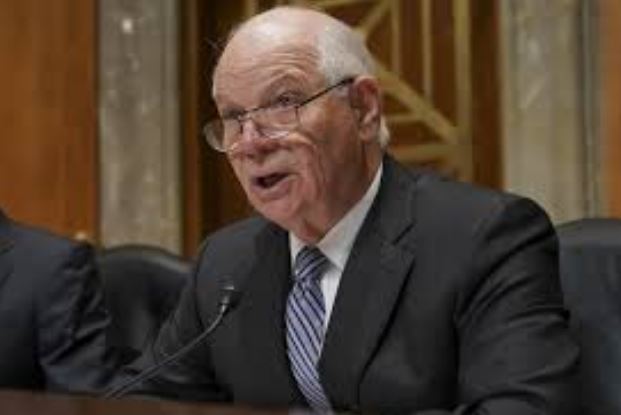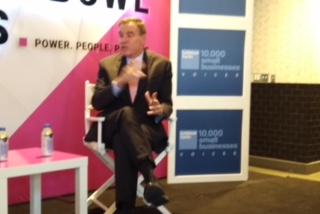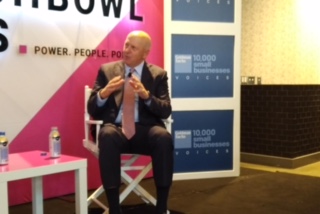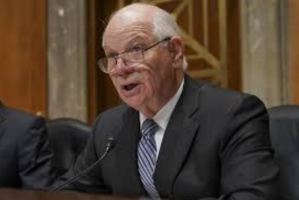By PK Semler
Special to the AFRO
The bipartisan bill — the Healthy Food Access for All Americans (HFAAA) Act – introduced earlier this year by Senator Mark Warner (D-VA) and Shelley Moore Capito (R-WV) — will for the first time directly address the issue of food deserts and the gaping divide between the have and have nots in urban/rural America; no better exemplified by the food desert capital of the United States: Baltimore.
Sen. Warner said he is determined to tackle the social and economic disparities represented by food deserts through a carrot (tax incentives, access to capital) and stick (withdrawing federal subsidies and borrowing facilities) approach.

The senior senator for Maryland and Highlandtown, Baltimore native Ben Cardin, said he has been in close contact with his colleague from Virginia regarding the need to solve the food desert and food insecurity crisis in Baltimore and in the rest of the nation.
Cardin said a major obstacle that needs to be addressed is to incentivize and convince major supermarket chains such as Safeway, Giant (Ahold), Aldi and others to open in the inner city.
“The problem is getting the financing…there is a structural impediment in going into inner city communities. There shouldn’t be but there is,” Cardin said, speaking behind an Aldi supermarket in Brandywine, Md. adding. “Part of it’s mental; part of it is confidence in the future; part of it is concern about public safety; part of it is concern about shoplifting. All those issues are factors currently being considered whether an investor is going to go into a community. And we have to overcome those obstacles and some of them are justified, but these are obstacles.”

Cardin also noted he has firsthand knowledge of the grocery business as he started in his grandfather’s (B. Green & Co.) wholesale grocery business in the Camden area of Baltimore.
A former governor of Virginia and successful TMT (telecommunications, media & technology) entrepreneur, Mark Warner knows how to get things done in Congress such as the $ 1 trillion “Build America Better” infrastructure bill and ensuring that minority banks received more than $ 12 billion from then US Treasury Secretary Steve Mnuchin for Covid-19 relief from the Payroll Protection Program (PPP).
The Warner/Capito bill mirrors a bipartisan bill in the US House of Representatives, sponsored by Rep. A. Donald McEachin (D-VA) and Rep. Tom Ryan (D-Ohio) that offers a one-time 15% tax credit for new supermarkets or retrofitting existing ones and one-time construction grants to food banks and farmer markets, mobile grocers and others would receive grants up to 10% of their annual service costs.
Not only does he seek bipartisan consensus by working with Republican Shelley Capito and Kansas Republican Senator Jerry Moran, but Warner is also roping in private sector partners like Wall Street mega banker and part-time DJ, Goldman Sachs CEO David M. Solomon.

Goldman Sachs has invested $300 million with Under Armour founder Kevin Plank in developing Port Covington into an IT hub of excellence after Amazon founder Jeff Bezos snubbed the area for the company’s second headquarters in favor of Crystal City in Arlington, Virginia.
While Port Covington may be luring away some of the best and brightest from Silicon Valley, the notorious food deserts of East and West Baltimore are worse than before after the devastating impact of Covid-19 has made an unimaginably bad situation even worse.
One can argue that food deserts are the best and most objective benchmark of economic disparity in the United States and should be used as the sole indicator for the determination of highly lucrative federal and state Opportunity Zone tax credits in economically depressed communities.
The horrible food deserts in East, West and Cherry Hill in Baltimore –where 25 percent of the population does not have access to quality foods – are mirrored in the rural communities such as the Appalachia’s in Senator Capito’s West Virginia. The US Senate and House bills can go a long way to convincing the CEOs such a Giant (Ahold) Frans Muller; Safeway CEO Robert Gerald Miller; and Germany’s Aldi Sud CEO Lars Hertzel to look at food deserts as an economic, as well as a social, opportunity.
The United States Department of Agriculture already has an in-depth interactive map of the nation food deserts that can be accessed at: https://www.ers.usda.gov/data-products/food-access-research-atlas/go-to-the-atlas.aspx
Senator Ben Cardin told the AFRO that he would be interested in speaking with US Treasury Secretary Janet Yellen about using the food desert definition to determine federal tax credits to Opportunity Zones rather than the current hodgepodge system today where some relatively affluent areas receive tax breaks while truly depressed areas do not.
This article is part of a multi-media series, “Securing the Bag,” focusing on Baltimore’s food deserts and food insecurity, funded by a grant from Solutions Journalism Network.
Help us Continue to tell OUR Story and join the AFRO family as a member – subscribers are now members! Join here!
The post #SecuringTheBag: US Senate takes aim at solving Baltimore’s food desert crisis appeared first on AFRO American Newspapers .











